Protein powder is something of a boon for those who use protein supplements : they are easy to prepare, versatile in their use and best of all, they work well for athletes.
Despite everything, precisely the fact that they are so widespread makes it difficult for us to find the best protein powder for our specific training.
A critical and scientifically based look can help us choose, regardless of the brand we prefer, which is the one that best suits our goals.

What exactly is protein powder?
Protein powders, as their name suggests, are products that concentrate the protein extracted from animal or vegetable sources in the form of edible powder.
These products are widely used in strength training and muscle development, and are usually presented mainly in these three ways:
- Protein concentrates : extracted from whole foods using heat and enzymes. They contain 60% and 80% protein.
- Protein isolates : this includes another step in its preparation: a kind of filter that separates fat and carbohydrates. They contain between 90% and 95% protein
- Hydrolyzed protein : this is produced with an extra dose of heat with acids and enzymes, which breaks down the barriers between amino acids, making your body absorb the protein faster.
Additionally, any of these presentations is usually sold with added vitamins, nutrients and minerals such as calcium.
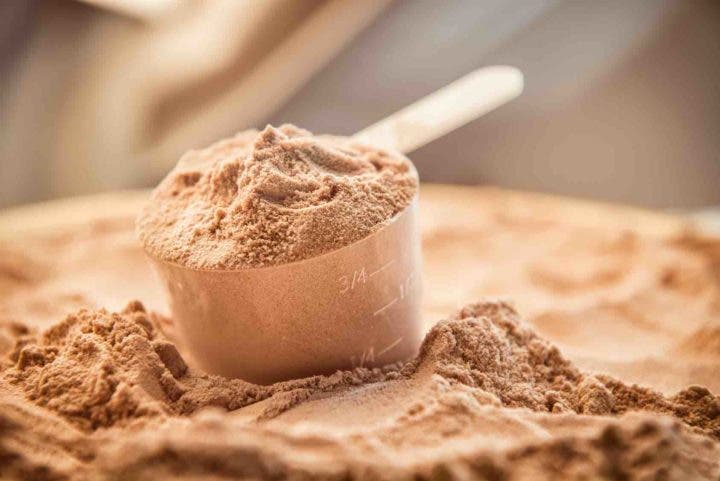
What types of protein powder are there?
1. Whey protein
Whey protein or Whey protein is obtained from milk. Whey is precisely the liquid product that separates from the curd during cheese preparation. The result is a mixture of protein and calcium.
Here are some characteristics of whey protein:
- It is rich in branched chain amino acids, such as leucine, which play an important role in the development and recovery of muscles.
- It contains lactose, a milk sugar that some people find difficult to digest.
- Improves muscle response during resistance training.
- According to some studies, it reduces appetite as much or more than other types of protein.
- Other studies claim that it reduces inflammation.

2. Casein protein
Casein protein is another type of protein extracted from milk, rich in calcium, but with a much slower absorption and digestion process than whey.
Casein forms a gel in the stomach that interacts with stomach acids, delaying the absorption of amino acids. This results in a longer exposure of the muscles to amino acids, improving their absorption but making it slower to process.
Here are some effects of casein protein:
- Some studies claim that it is more effective than soy and wheat protein in building muscle.
- It has been linked to greater loss of body fat.
- Useful especially during resistance exercises.
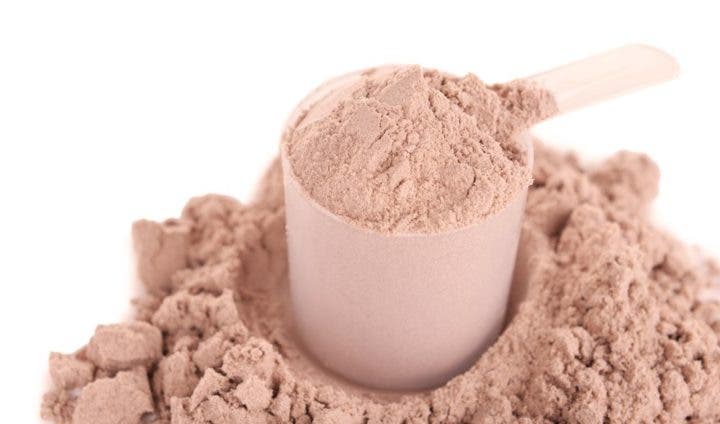
3. Egg protein
Eggs are famous for being a reliable source of protein: their high levels of easily digestible amino acids make them ideal as a protein supplement and as an appetite-reducing method.
However, this reality mainly applies to whole eggs. Egg protein powder , on the other hand, is usually made with white eggs, which has certain side consequences that, however, do not affect the protein obtained.
Thus, this type of protein has the following characteristics:
- By not having the yolk in its preparation, it is more difficult to keep our appetite under control.
- It is the second type of protein powder, after whey, in terms of leucine content, which plays a fundamental role in muscle development.
- For those allergic or lactose intolerant who want an animal protein, it is a good option.
However, the research on egg protein is relatively little, so its use in resistance training and muscle development is left to personal discretion.
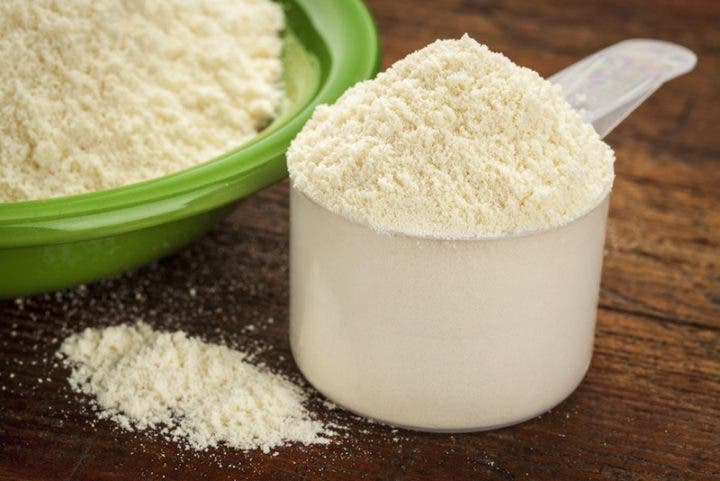
4. Pea protein
The use of pea protein powder is relatively new, and is largely driven among vegans and vegetarians, but this does not prevent anyone from taking advantage of its benefits, such as the following:
- A rich supply of fiber.
- Presence of almost all essential amino acids, except methionine.
- Also high levels of branched chain amino acids.
- It can slow down your appetite hormones just like milk protein supplements.
- It can control blood pressure.
Either way, the recent use of peas as a supplement still requires more conclusive long-term studies.
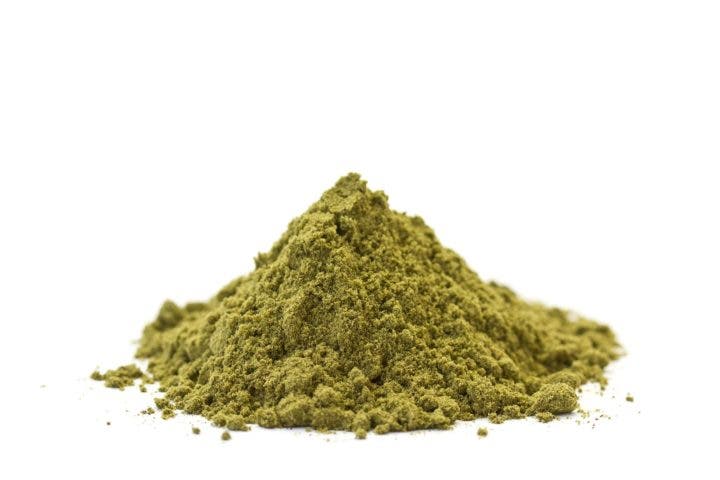
5. Hemp protein
Hemp protein powder is another protein supplement that is growing in popularity. Although previously only related to marijuana, hemp contains general health benefits such as the following:
- Omega 3 fatty acids.
- Contains several essential amino acids.
- It is easily digestible.
Despite this, hemp protein cannot be considered a truly complete protein , as it lacks amino acids such as lysine and leucine.
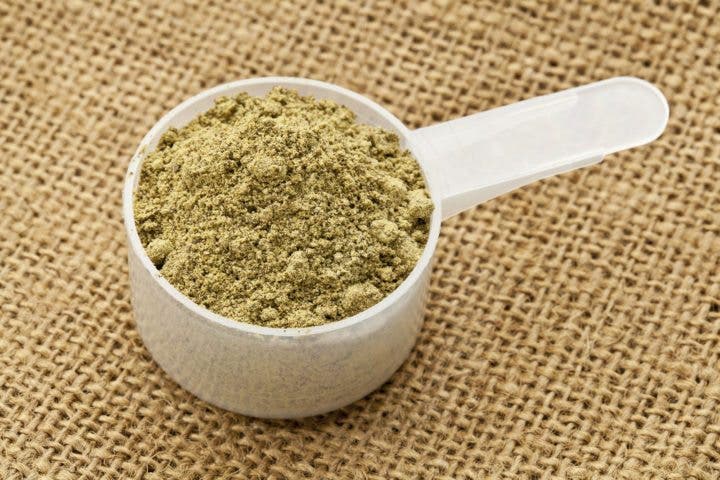
6. Brown rice protein
Brown rice protein is not new, but its use has long been neglected because it is considered not as effective as other proteins, especially for building muscle mass.
Here’s what several studies have found about the qualities of brown rice protein:
- It contains several types of amino acids, but lacking lysine, many avoid referring to it as a whole protein.
- Some studies indicate that consuming 48 grams of rice protein daily can have almost the same long-term effects as consuming whey protein.
- It is useful for improving muscle composition, strength, and recovery.
Again, being a supplement whose use became popular recently, it is necessary to do more studies before drawing definitive conclusions.

7. Mixed Vegetable Protein Powder
Some protein supplements simply prefer to “take no chances” and rather than limit themselves to a single source, choose to make a mix of several protein sources, as in the case of protein powder from various vegetables.
The most common is that this type of protein mixes two or more of these components:
- Integral rice.
- Pea.
- Hemp.
- Alfalfa.
- Chia seeds.
- Quinoa.
- Flax.
What happens with vegetable protein is that its high fiber content makes it slow to digest. This, although it does not limit its absorption, means that its effect is not so immediate after consuming it. However, this does not make it a less reliable option, especially for vegans and vegetarians.

Reference
- Franziska Spritzler. The 7 Best Types of Protein Powder. For Authority Nutrition. [Revised August 2016]